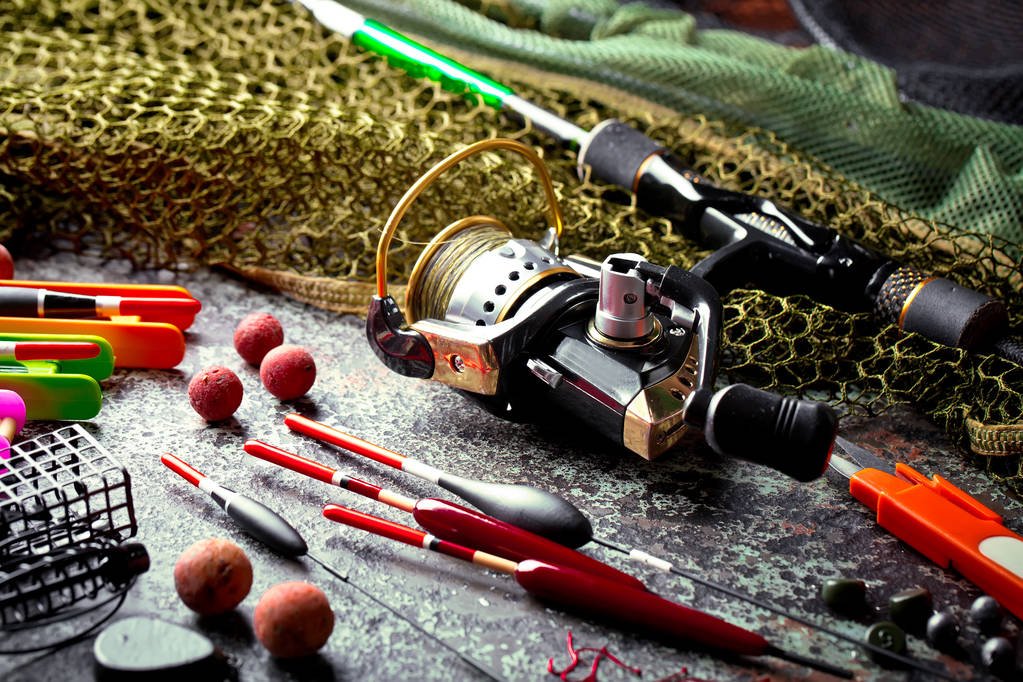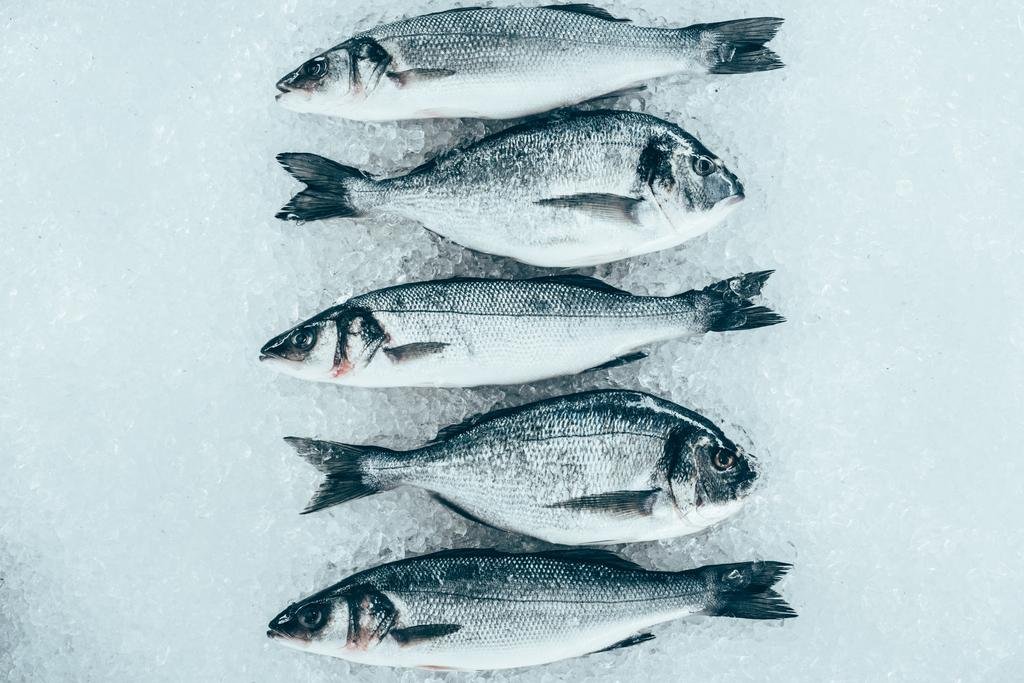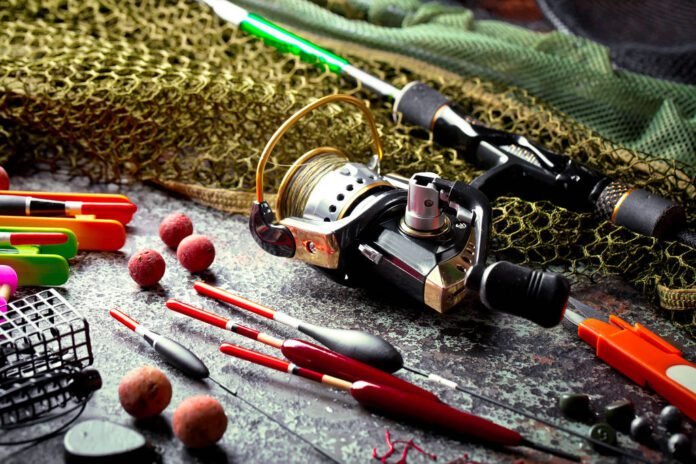Definition of Fishing
Fishing is defined as the activity of catching fish for food, sport, or pleasure. It can be done in freshwater, saltwater, or through ice fishing. As a hobby, it becomes a blend of skill, patience, and respect for nature.
Benefits of Fishing
Engaging in fishing provides numerous benefits, including:
- Relaxation: Spending time in nature helps reduce stress.
- Physical Activity: Casting and reeling offer a good workout.
- Social Interaction: Fishing trips create lasting memories with friends and family.
Types of Fishing Techniques
There are various fishing techniques to explore:
- Casting: Simple and effective for beginners.
- Trolling: A method where lures are pulled behind a moving boat.
- Fly Fishing: Uses lightweight flies to attract fish, often challenging and rewarding.
Whether it’s your first time or you’re perfecting your craft, understanding the basics truly sets the stage for more exciting angling adventures ahead.[1][2]
Gear and Equipment for Fishing
Rods, Reels, and Lines

Source:Vista.com
Fishing rods are fundamental tools that come in various lengths and actions, perfectly suited to your fishing style. Pairing your rod with the right reel—spinning, baitcasting, or fly reel— enhances your angling experience. Monofilament lines work well for beginners, offering versatility. For the aspiring angler, a combo setup can simplify your first outing, making fishing approachable and enjoyable.
Hooks, Baits, and Lures
Hook selection is crucial, as different sizes and shapes cater to various fish types. Pair your hooks with live bait like worms or minnows for an authentic catch, or experiment with lures that mimic prey. Soft plastics, spinnerbaits, and crankbaits are excellent choices to add to your tackle box, allowing you to adapt to what works best in your local waters.
Fishing Accessories
Accessories enhance your fishing trip’s efficiency:
- Tackle Boxes: Keep your gear organized and easily accessible.
- Pliers: Ideal for removing hooks and cutting lines.
- Fishing Nets: Essential for successfully landing your catch.
Investing in these strategic accessories ensures you’re well-equipped for an enjoyable and successful fishing adventure. With the right gear by your side, the thrill of the catch awaits![3][4]
Identifying and Selecting Fishing Spots

Source:Vista.com
Understanding Fish Behavior
To become a successful angler, one must first grasp the behavior of fish. Understanding when they feed, their preferred habitats, and their responses to environmental changes can greatly enhance your chances of landing a catch. For instance, fish tend to favor areas with submerged rocks or weed beds for shelter, especially during feeding times.
Researching Fishing Locations
Before heading out, it’s beneficial to research potential fishing locations. Utilize local fishing reports, forums, and apps that provide insights into recent catches and current fishing conditions. Engaging with the community can lead to discovering hidden gems where fish are abundant.
Factors to Consider in Choosing Fishing Spots
When selecting your fishing spot, consider:
- Water Temperature: Different species prefer various temperatures.
- Current and Tides: These factors influence fish movement.
- Time of Day: Early mornings and late evenings are often prime times for fishing.
By understanding fish behavior and utilizing researched locations, anglers can make informed decisions that lead to successful fishing adventures.[5][6]
Essential Fishing Skills and Techniques
Casting Techniques
Mastering casting is fundamental; the ability to place your bait accurately can significantly increase your success. Beginners should focus on maintaining a firm grip on the rod and using a smooth, controlled motion. Practicing in a backyard or an open area can help improve distance and precision.
Setting the Hook
Once you’ve felt a bite, the next step is to set the hook. A firm, quick upward motion of the rod is essential to ensure the hook embeds in the fish’s mouth. Timing is critical; hook too early and you may miss the chance, hook too late and the fish may get away!
Playing and Landing Fish
After hooking a fish, keeping steady pressure while reeling it in is vital. Avoid jagged jerks to prevent line breakage; instead, let the fish tire itself out. Use a landing net when bringing the fish close to shore or the boat, ensuring a successful catch while prioritizing ethical release practices if necessary.By developing these essential skills, you’ll enhance your fishing experience and increase your chances of success on every outing![7][8]
Safety Measures and Regulations in Fishing
Basic Safety Precautions
Fishing is a fun and rewarding activity, but safety should always be a priority. Ensure you have the following:
- Life jackets: Always wear one, especially in boats.
- Sunscreen: Protect your skin from harmful UV rays.
- First aid kit: Be prepared for minor injuries.
- Stay hydrated: Bring plenty of water for long outings.
Understanding Fishing Regulations
Fishing regulations are in place to protect fish populations and their ecosystems. Familiarize yourself with:
- License requirements: Make sure to have a valid fishing license.
- Size and bag limits: Know the permissible sizes and quantities for different species.
- Seasonal restrictions: Some species have specific open and closed seasons to preserve their populations.
Environmental Conservation
Respecting the environment is essential for sustainable fishing. Practice conservation by:
- Catch and release: Letting fish go helps maintain population levels.
- Proper disposal of waste: Dispose of trash responsibly to keep water bodies clean.
- Respecting natural habitats: Avoid disrupting wildlife and their nesting areas.
With these safety measures and regulations in mind, you’re well on your way to enjoying the beautiful, tranquil experience that fishing offers while ensuring the health of our natural resources. Happy fishing![9][10]
Tips for a Successful Fishing Trip
Planning Ahead
Preparation is key to a successful fishing trip. Begin by researching your fishing location, checking local weather conditions, and understanding the best times to fish for your target species. Create a checklist of all the gear you need, ensuring you pack your rods, reels, nets, and plenty of bait.
Fishing Etiquette
Respect your fellow anglers and the environment by adhering to fishing etiquette. This includes:
- Keeping noise levels down: Fish can be easily spooked.
- Avoiding crowded areas: Give space to other fishermen.
- Cleaning up: Leave the area better than you found it, disposing of all trash responsibly.
Troubleshooting Common Issues
When things don’t go as planned, keep calm. If fish aren’t biting, consider:
- Changing bait or lures: Sometimes a simple switch can make a difference.
- Adjusting your location: Moving to a different spot may yield better results.
- Reviewing your setup: Ensure your gear is configured correctly and free from tangles.
By planning ahead, following fishing etiquette, and knowing how to troubleshoot common issues, your fishing trip will be enjoyable and productive. Happy fishing![11][12]
Advancing Your Fishing Knowledge
Continuing Education
Staying current in the fishing world is vital for success. Consider enrolling in workshops or online courses that cover various aspects of fishing, such as species-specific techniques, gear maintenance, and safety measures. Platforms like “In The Spread” offer a wealth of instructional videos that can elevate your skills from beginner to pro.
Joining Fishing Communities
Engaging with local or online fishing communities can be incredibly beneficial. Share your experiences, ask questions, and learn from others in forums or social media groups. This camaraderie not only builds friendships but also enhances your skills through shared knowledge and tips.
Learning from Experienced Anglers
Seek out mentors or experienced anglers who can offer valuable insights. Whether it’s through a fishing buddy system, local clubs, or guided trips, learning from those who’ve mastered the craft can accelerate your growth. They can provide hands-on tips and techniques that courses may not cover.By continuously educating yourself, connecting with fellow anglers, and learning from seasoned veterans, you can drive your fishing expertise to new heights. Enjoy the journey of learning, and may every trip lead to new discoveries and memorable experiences on the water![13][14]
Conclusion
Recap of Key Learnings
As we wrap up this guide, remember the foundational elements of successful fishing: understanding various fishing techniques, selecting the right bait, mastering casting, and reading the water. Each of these skills not only enhances your chances of landing a catch but also deepens your connection with nature.
Encouragement for Future Fishing Adventures
Fishing is a continual journey of learning and discovery. Step out of your comfort zone, explore new fishing spots, and don’t hesitate to try different techniques. Be patient, enjoy the tranquility of the environment, and cherish each moment on the water. So grab your gear and venture out—amazing adventures await! Happy fishing![15][16]


